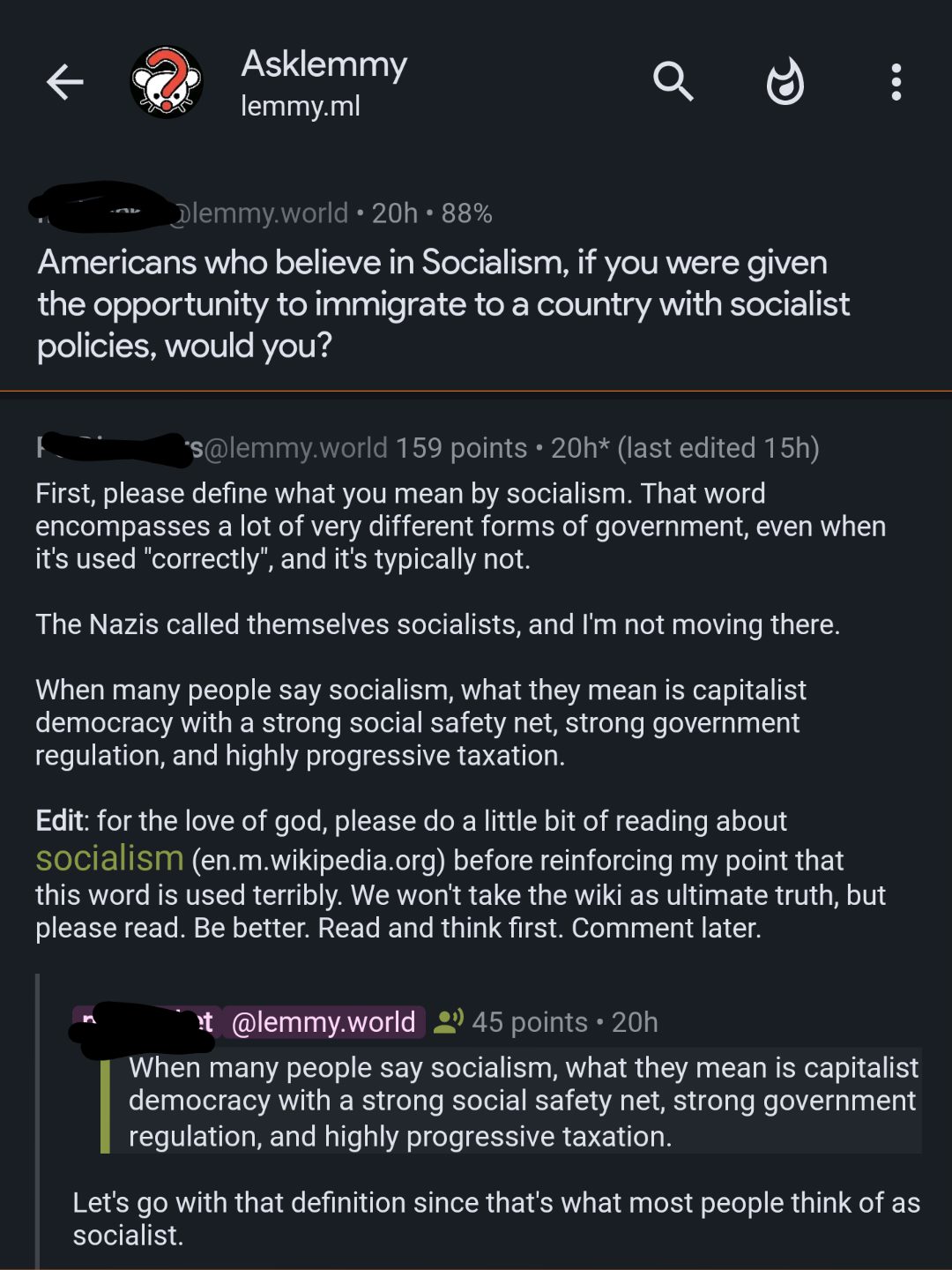the_dunk_tank
It's the dunk tank.
This is where you come to post big-brained hot takes by chuds, libs, or even fellow leftists, and tear them to itty-bitty pieces with precision dunkstrikes.
Rule 1: All posts must include links to the subject matter, and no identifying information should be redacted.
Rule 2: If your source is a reactionary website, please use archive.is instead of linking directly.
Rule 3: No sectarianism.
Rule 4: TERF/SWERFs Not Welcome
Rule 5: No ableism of any kind (that includes stuff like libt*rd)
Rule 6: Do not post fellow hexbears.
Rule 7: Do not individually target other instances' admins or moderators.
Rule 8: The subject of a post cannot be low hanging fruit, that is comments/posts made by a private person that have low amount of upvotes/likes/views. Comments/Posts made on other instances that are accessible from hexbear are an exception to this. Posts that do not meet this requirement can be posted to [email protected]
Rule 9: if you post ironic rage bait im going to make a personal visit to your house to make sure you never make this mistake again
view the rest of the comments

"socialism is when the government does stuff" as a definition doesn't even fit the question though does it? It's clearly a response to the "communism no food" stereotype which isn't levied against western socdems by anyone but the most brain broken chud who only says that because they ignorantly conflate it with revolutionary socialism. No one is saying "Sweden is when no food" are they? Obviously oil-rich Western socdem countries with social programs would be an upgrade to any American making under 6 figures. So what's the question if you aren't talking about revolutionary socialism which is unpleasant in the transitional stage compared to most Western countries' lifestyles? (China is already probably about on par with, or slightly nicer of a place to live than America already, but I don't expect the op to understand that)
There's a little bit of correlation vs causation that you can argue with regards to this point as well. Yes, it's almost certainly true that any revolutionary upheaval in how society is organized is going to result in a bumpy transition. But revolution is often an act of desperation, a step that people are typically only willing to take after every other option has been exhausted and the alternative of being worked into an early grave is too bleak to accept. And even then, revolution is only likely once a critical mass of people find themselves in the same wretched circumstances.
So I would make the argument that causation should actually be reversed. It's not revolutionary transition that leads to poor living conditions, it's poor living conditions that leads to revolution.
I wasn't arguing that, I was just pointing out that the conditions in AES as we can assume are envisioned by the OP, are poor compared to the average American's. Not even compared to the workers' starting point. Yes, certainly the revolutions in China and Russia and Cuba started rewarding the working people with a higher quality of life within five years compared to their previous standing.
The question as you rightly point out is a wrong one in that regard as well, but I was specifically talking about their choice of definition for "socialism" not making sense.
If the question is "would you move to a rich socdem country?" The answer, following the spirit of the question, family ties and language barrier for example not being included, and being directed at existing socialists, is of course going to be a resounding yes, just like those "would you rather" questions where one option is to eat pizza and the other is to eat rocks. It's a pointless question.
I didn't assume you were arguing that, I was expanding on a point you brought up.
Oh yeah? Well I didn't assume that you assumed that!
Curses, I've fallen prey to the oldest blunder in the book!
(secretly I did assume that. I'm sorry comrade)
China is easily on par with America, but America is one of the worst Western countries. It's a harder sell when comparing to other Western countries because China's labour protections and work culture could still use work.